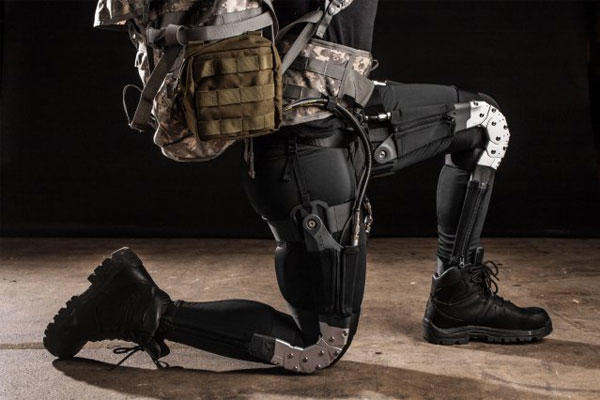The book Marine Corps Commandant Gen. Robert Neller is encouraging all his troops to read isn't Sun Tzu's "The Art of War" or the age-old reading list classic "A Message to Garcia."
It's "Ghost Fleet," a futuristic "Novel of the Next World War" published last year by think tankers August Cole and P.W. Singer.
As the Marine Corps expands its cyber warfare and information warfare communities and looks for opportunities to embrace cutting-edge technologies, the lines between science fiction and future warfare quickly blur.
To underscore the point, the Marine Corps Warfighting Lab hosted a "Science Fiction Futures" workshop Feb. 3, featuring Cole, Singer and other sci-fi authors who met and discussed concepts and ideas with a group of 17 Marines and sailors selected from a pool of applicants.
In a town hall meeting on Feb. 12 with Marines at Joint Base Myer-Henderson Hall in Virginia, Neller suggested that even seemingly far-fetched future warfighting concepts, like exo-suits and fighting surrogates from the 2009 blockbuster movie Avatar, could pose dilemmas for troops in the near future.
"All the stuff with the brain and the body, it's kind of crazy," he said. "There's ethical and moral issues there that might slow us down, but I'm not sure it's going to slow down our adversaries."
New technology has healing potential, too, Neller said. He discussed a recent visit to the Defense Advanced Research Projects Agency (DARPA), the Pentagon's research agency, in which he had seen troops using prosthetic arms with sensors that allowed the brain to control and move an artificial limb. With advances in 3-D printing, he suggested, wounded troops may spend much less time out of commission.
"[You could have] a 3-D printer on the battlefield and if you have surgery, we print you a new arm or a new leg right there," Neller said. "I don't know if it's feasible, but the potential is there."
He encouraged Marines to look at commercially available new technology -- including the robotic camera-equipped quadcopter drones for sale at the local base exchange -- and imagine ways they could improve unit operational effectiveness.
"Why doesn't every rifle squad have one of those?" he said. "If it crashes, who cares? It's $500. There's a lot of stuff going on and we're going to go there."
Note: This story was updated to correct the spelling of the author's name Sun Tzu in the first paragraph.
--Hope Hodge Seck can be reached at hope.seck@military.com. Follow her on Twitter at @HopeSeck.






























